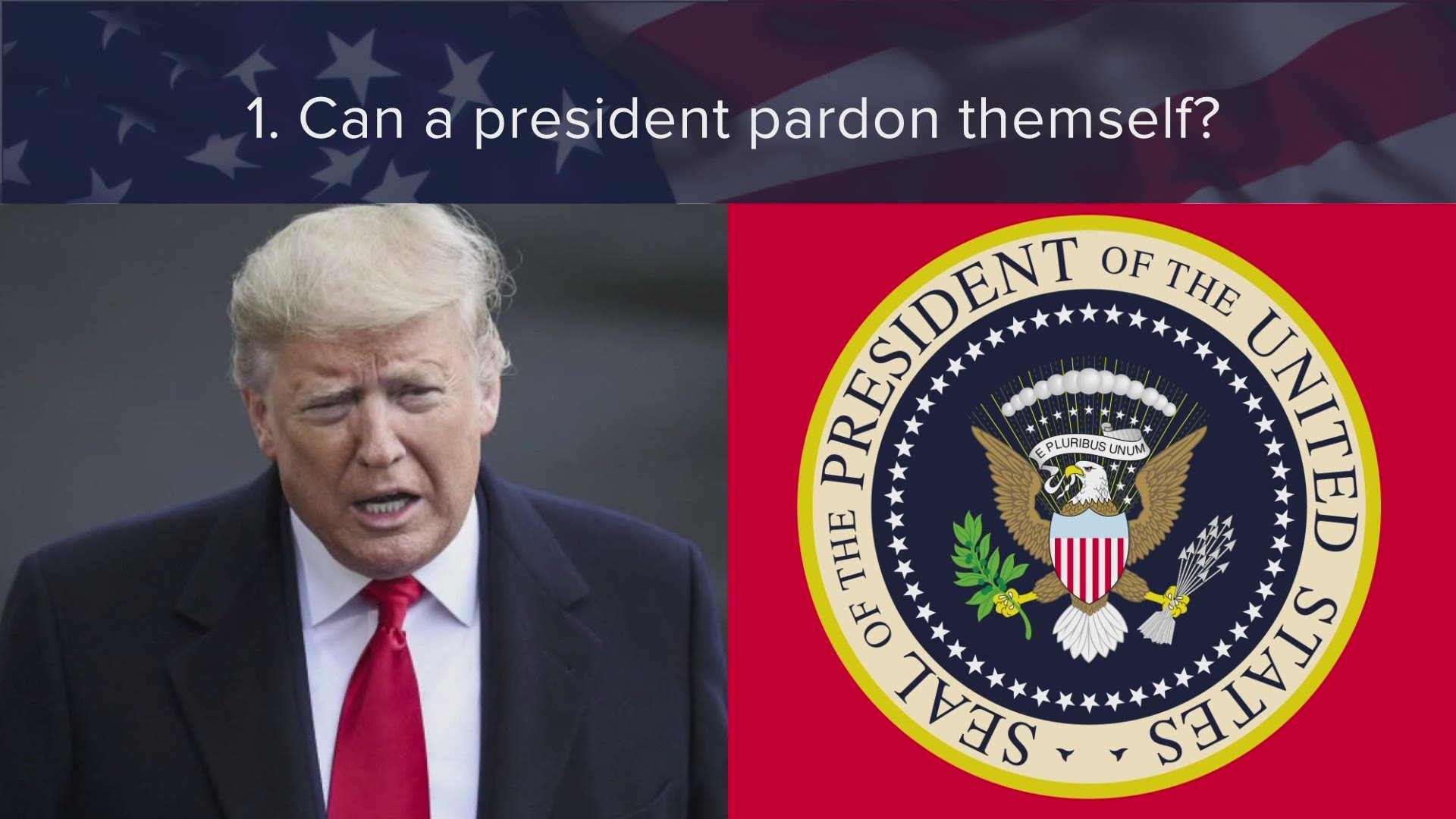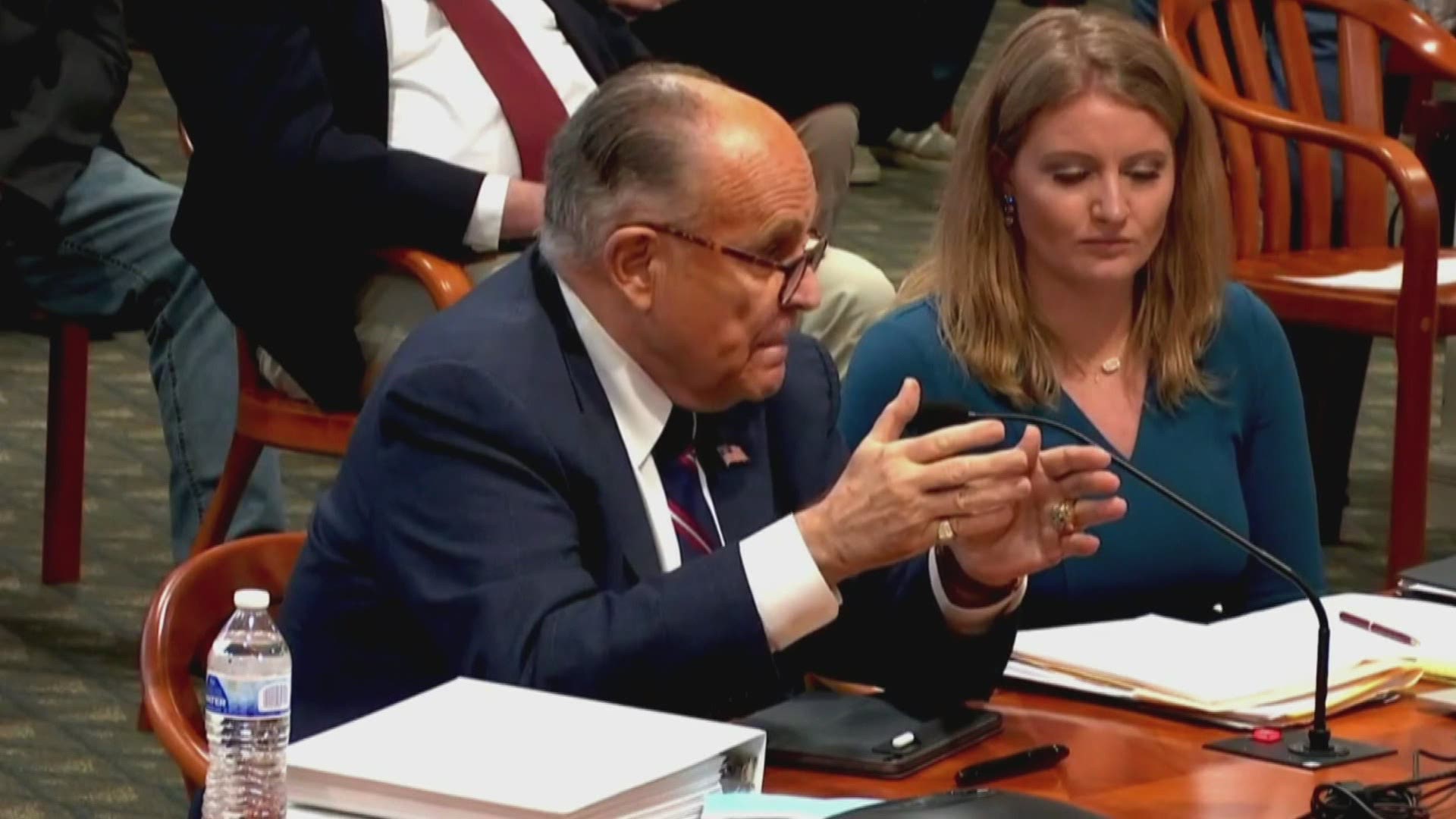GRAND RAPIDS, Michigan — President Trump is already flexing his pardon power on his way out of office. But, lots of question remain about who he can pardon, and under what circumstances. For some perspective, here's our constitutional law expert, Cooley Law professor, Devin Schindler.
On the issue of pardoning oneself, Schindler says it's unknown, but not likely. He says Article II of the Constitution says a president may issues pardons and reprieves. But he also says a pardon is usually reserved for another person. Schindler also points out that the Supreme Court has never ruled on this matter.
Reports say the president is looking at pre-emptively pardoning his family. Schindler says this has been done before. President Ford pre-emptively pardoned President Nixon, even though he'd not yet been charged with any crimes. President Andrew Johnson did the same for former Confederate soldiers after the Civil War.
Finally, there are reports that the DOJ is investigation claims of money being laundered through the White House in exchange for a presidential pardons. In short, Schinder says this would be part of a criminal conspiracy, and not constitutional.
►Make it easy to keep up to date with more stories like this. Download the 13 ON YOUR SIDE app now.
Have a news tip? Email news@13onyourside.com, visit our Facebook page or Twitter. Subscribe to our YouTube channel.


